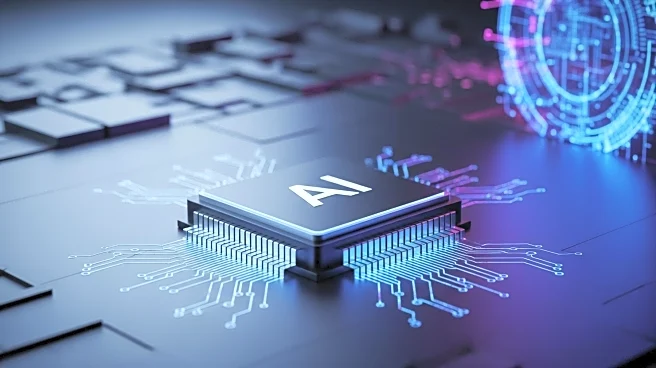What's Happening?
The Model Context Protocol (MCP) has been introduced by AI company Anthropic as a standardized method for connecting AI models to various data sources and tools. This protocol is likened to a 'USB-C for AI,' providing a universal standard for AI interoperability. Major tech companies such as Microsoft, Google DeepMind, and OpenAI have announced their support for MCP, indicating its potential to become a default standard in the AI industry. MCP allows AI systems to connect seamlessly, enabling new workflows and reducing integration complexities. Legal tech vendors and law firms are particularly poised to benefit from MCP, as it facilitates the connection of systems that were previously incompatible, thereby unlocking new applications and efficiencies.
Why It's Important?
The introduction of MCP is significant as it addresses the longstanding issue of isolated AI systems requiring custom integrations for each new data source. By standardizing these connections, MCP can transform industries reliant on AI, such as legal tech, by enabling more efficient workflows and fostering innovation. Companies that adopt MCP can gain competitive advantages through enhanced collaboration and integration capabilities. This shift could lead to the development of new partnerships and services, as seen with early adopters like iManage and the partnership between Juro and Wordsmith. The broader impact of MCP could redefine how businesses leverage AI, making them more open and connected.
What's Next?
As MCP gains traction, more vendors and law firms are expected to embrace the protocol, leading to increased collaboration and the creation of new services. The legal industry, in particular, may see a rise in integrated AI offerings that streamline operations and improve client services. However, the adoption of MCP also necessitates careful consideration of security measures and permissions to mitigate risks associated with AI systems taking actions based on data access. Companies will need to balance the benefits of MCP with the potential risks, ensuring that integrations are secure and stable.
Beyond the Headlines
The adoption of MCP could have deeper implications for the AI industry, potentially leading to a shift in how competitive advantages are built. Instead of relying on proprietary integrations, companies may focus on openness and collaboration as key differentiators. This could foster a more interconnected ecosystem where innovation is driven by shared standards and collective efforts. Additionally, the ability of AI systems to act on data could raise ethical and operational concerns, requiring businesses to establish clear guidelines and controls to prevent unintended consequences.











